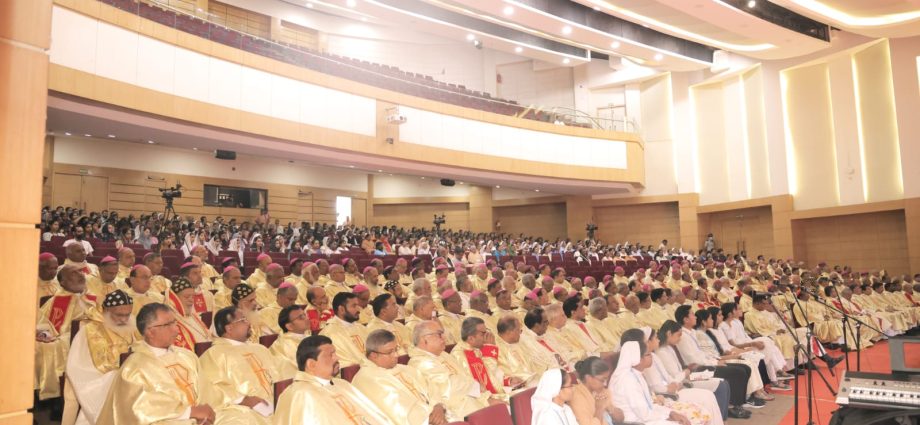By Matters India Reporter
Bengaluru, Feb 1, 2024: The second day of the General Body Meeting of the Catholic Bishops’ Conference of India (CBCI) on February 1 saw the participants the review the outcome of the Rome Synod on Synodality, Manipur crisis and situation of Christians across the country.
Cardinal Oswald Gracias, who played a pivotal role in the Synod in Rome in October 2023, presented the theme, “The Fruits of the Synod on Synodality.” The cardinal, who is the archbishop of Bombay, described the synod as a renewed call of the Vatican I1, stressing the role and responsibility of God’s people in the Church.
He said that, on one of the synod’s innovations was “conversation in the Spirit,” a process that involved time to internalize discussions, fostering mature discernment and consensus.
Archbishop Linus Neli of Imphal, who addressed the present status of Manipur, expressed immense gratitude for the spiritual and humanitarian assistance provided by bishops and NGOs to his strife-torn people.
He highlighted the demographic, historic, and ethnic aspects of Manipur, shedding light on the relief and rehabilitation efforts by the Catholic Church. He explained the devastating destruction of approximately 300 churches, and thousands of homes, the closure of numerous educational institutions, and the displacement of thousands of people.
He said peace process is gradual and it will take time.
Robin Christopher, deputy director of Strategic Litigation, ADF India, discussed the “All India Situation of Christians,” shedding light on the challenges Christians face, including violence and false cases of conversion.
In other significant activities, Father Aloysius Ephrem Raju Alex, secretary of the Catholic Council of India (CCI), presented a comprehensive report on the council’s historical development, financial matters, and strategic planning.
Sister Shimy Varghese, a member of the Daughters of the Heart of Mary and secretary of the newly formed CBCI Office for Environment and Climate Change, reported on the National Conference on ecology held at Dharmaram, Bengaluru.


The Christian denominations of India, from the Catholic Church to the Pentecostal Churches should take a unanimous decision not to allow any BJP person to speak in their general gatherings. I was greatly shocked to hear the speech of Gov. P.S. Sreedharan Pillai, Governor of Goa at the 100th year India Pentecostal Church convention at Kumbanad, Kerala; in which he was trying to hide the pre-calculated attack by the BJP rulers of Manipur against the Kuki Christians.
The moot question is: Who in the eyes of the Catholic Bishops’ Conference of India (CBCI) are God’s people in the Church?
Also in the report elaborates nothing on the following points:
(1) Financial matters (2) Strategic Planning (3) Strategic Litigation, ADF India.
What are these? Are these meant only for the consumption of 180 Bishops of CBCI?
To add on to my previous comments, I wish to know whether CBCI will discuss on the casteism that is widespread in most dioceses, especially in the southern India, clerical sexual abuses and the involvement of the clergy in corruption and criminal activities. For every CBCI/CCBI meeting huge amount of money is spent. Whose money and what is the end result of the meetings? This remains a million-dollar question.
I wonder whether the members of the CBCI will discuss the “dangerous political scenario in India” – examples: BJP ushering in Rama Rajya – Pran Prathista of the incomplete Ram temple at Ayodhya; Modi projecting himself as a mini-God; toppling non-BJP ruled state governments like Bihar and Jharkhand; BJP using CBI/ED against all opposition leaders and parties; BJP banking on EVMs and a strong opposition campaigns against EVMs; the pro-corporate approach of the federal government and the continuation of attacks on minority communities etc.
If CBCI does not discuss any of the above mentioned issues, then, the age-old saying “Nero fiddled while Rome burnt” is applicable to CBCI.